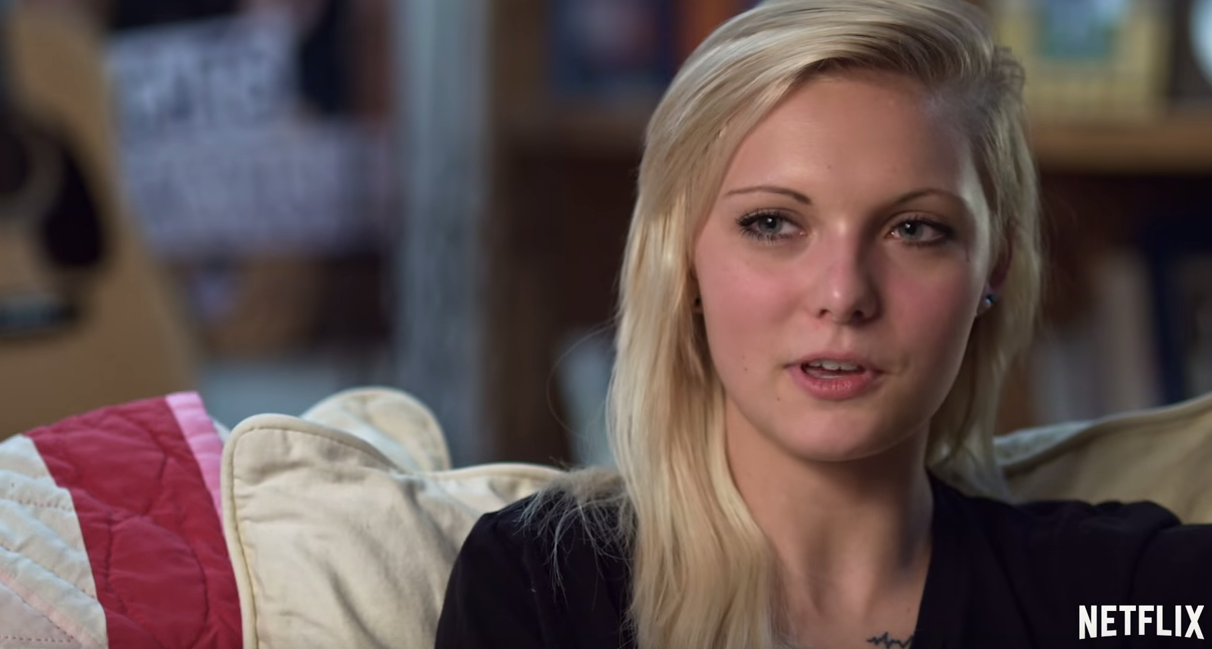We Talked to Daisy from 'Audrie & Daisy' About Being Sexually Assaulted in High School

By:
Daisy Coleman lost her father, Michael, at age 9, and she believed that would be the worst experience of her childhood.
It wasn't.
She endured another life-altering trauma in 2012, which is dealt with in "Audrie & Daisy," a new documentary about high school sexual assault.
 Netflix US and Canada - youtube.com
Netflix US and Canada - youtube.com
Coleman was 14 when she and a friend started drinking together on a Saturday night before sneaking over to the basement of Matthew Barnett, a 17-year-old pal of Coleman's older brother and the grandson of a former state legislator.
The last thing Coleman remembers from that evening is receiving more alcohol from Barnett and his friends. In the early hours of Sunday morning, she was found sprawled on her mother's front yard in 22 degree weather. Coleman's mother undressed her to give her a bath and discovered red marks on her genital area.
Coleman's family reported what they believed to be a sexual assault, which was confirmed by a rape kit.
What they didn't expect was the brutal harassment that followed in their town of Maryville, Missouri. Coleman repeatedly tried committing suicide in the aftermath. She survived.
Audrie Pott, the other subject of "Audrie & Daisy," was not so lucky. The California native was sexually assaulted at a high school party, which was photographed and documented on social media. Pott hanged herself afterward.
Coleman lived through the trauma of her sexual assault and the ensuing mistreatment from townspeople. Coleman's story subsequently went viral several years ago, and Delaney Henderson, another young woman who was sexually assaulted in high school, reached out to her on social media. The two friends began working together to raise awareness of sexual assault.
ATTN: spoke with Coleman, Henderson, and "Audrie & Daisy" director Bonni Cohen about the film and the larger issue of sexual assault.
This interview has been lightly edited.
ATTN: College sexual assault has received a lot of attention in recent years. How do you think the way society talks about high school sexual assault is different from the way it approaches college sexual assault?
Bonni Cohen: For one, high school sexual assault is going on under the roofs of homes where parents are often at home. With college sexual assault, it's happening at an institution where presumably kids are living as adults. It's a completely different kind of culpability.
When it comes to high school sexual assault, we are responsible. It is our community, our homes, our families. Frankly, it's a place where we can really look at ourselves and try and change.
I feel like with college sexual assault, you get into this weird land of institutional right and wrong. It's not really about the institutions. It's about who we are as people. So by the time you put these boys in college, they have to have learned right from wrong. That really was the main impetus for making the film. We sort of thought, 'We need a prequel for that. We need to look back and see where we're going wrong.'
ATTN: Daisy, your town reacted to your incident in a very unkind way. Since the film started generating attention in recent months and since its release on Friday, have you gotten any sort of sense from people in Maryville that they're sorry for the way they treated you? Have they doubled down?
Daisy Coleman: My close group of friends who I was friends with at the time [of the assault] came forward and gave me their condolences [and said] they were too afraid to speak out for me [in the past]. I've had a lot of support from that friend group, but other than that I haven't received any word from people in Maryville.
ATTN: Earlier this year, you told Democracy Now that this whole experience stripped you of who you used to be. Do you ever wonder what your life would be like had this not happened to you?
Daisy Coleman: I somewhat do, because I still would have been blind to what rape culture is and what we're living in. At the time before my assault, I had no clue that this was happening to so many women in our nation. I was so blind to the fact that people are so awful to these victims and these survivors. I had absolutely no clue what was going on, given that I was only a freshman in high school, of course. But after all of this happened, I feel like it really shaped me into this person who has a lot of compassion for those that are hurting like this.
ATTN: Do you think your town's instinct to stand with [Barnett] had to do with his grandfather's political connection? Was it his personal involvement in the football team?
Daisy Coleman: I feel like a portion of it was because of his grandfather's standing, but I feel like a large majority of it was because I didn't grow up with these people. These people grew up from kindergarten with this boy, and they knew him as a sibling almost. They don't want to think that someone they love so dearly could do something so awful. I completely understand that feeling that they are currently feeling and have felt.
Delaney Henderson: Daisy and I were just talking about this recently. Even in my story, I grew up in this hometown as well as the two boys that [sexually assaulted] me. The town still turned their backs on me, so I don't know what it is and why that's such a part of rape culture: to automatically blame the victim.
Daisy Coleman: It's so much easier to believe someone is lying than someone else could do something so awful.
